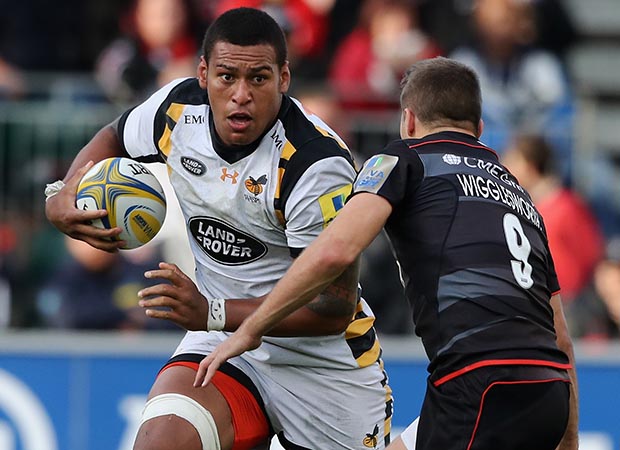
That embarrassment must have been doubled for three-times champions Toulon, losing at home to a Saracens team who dominated the early stages of the game.
Toulon had previously never lost a European game at home but Sarries’ all round game enabled them to hold on for a sensational win. It would appear the years of being the ‘bridesmaid’ team have taught Saracens how to win with style and consistency.
Toulon could learn a lesson from Sarries as they struggle to keep the consistency that has surrounded the club over the past few years now that they have lost some of their older stars.
Toulon are a side very much like the Saracens in the recent past: buy the big names and hope it will be enough to win – which it is, but only in the short term. The problem with buying older players is, no matter how good they were, they need replacing earlier. And if replacing like for like, it gets expensive having to rebuild the team every few years.
Rebuilding a team obviously takes time and can lead to inconsistent results. The time taken for the various players to adjust to their new teammates is something that can be avoided – if you bring young players through your club system.
In the early days of professionalism, Saracens also thought they could buy success by investing in aging ex-internationals, but that idea finally gave way to sense and a system that has seen the team grow. Yes, there are still some ex-internationals in the ranks but they have been joined by a number of current stars brought through theirs or other club’s academy.
Saracens, like many other clubs, have developed players through their academy enabling them to increase the average number of English-qualified players (EQP) per match day squad to around 15.
The new PRL/RFU agreement provides funding to clubs that manage to pick 14 or more English qualified players out of a match day squad of 23, it’s a target that all the Premiership clubs aim for. Sadly for the French, their federation is still in the throes of political machinations, which have delayed the building of their own stadium that would provide the French Union with enough money to start an equivalent FQP scheme to help the national side.
Currently in our Premiership only two clubs, Worcester and Newcastle, have failed to reach the golden target but hope that the European competitions will give them the necessary boost in EQPs to get their money.
Newcastle and Worcester are both in the Challenge Cup and are fielding different teams to those that play in the Premiership matches thus allowing young players to gain some experience in less important games.
The increased level of EQPs in match day squads is not all down to home- grown talent making it through the ranks, but has more to do with time. Time can be important if you want to ensure your EQP numbers are at the right level for payment as just a few days, weeks or months could make all the difference between being a club sharing the money extorted out of the RFU for player release or missing the windfall. The important thing for clubs when buying foreign players is to ensure they are free from international ties from other countries, in other words; they haven’t played a senior international Test match.
Allowing them, after they have completed the three years uninterrupted residency, to become an EQP helps a club to boost their EQP numbers to the required levels to get the RFU payments even if those players are highly unlikely to be picked for the EPS. The statistics showing the number of EQPs playing in the Premiership and Championship doesn’t break down into how many players were born and raised here or how many just qualify through residency.
As the Championship currently doesn’t have an EQP agreement regarding their funding, I would not be surprised if there are a number of foreign players on dual contracts just waiting to finish their residency before moving up to the Premiership
We also have the players whose parents moved here to play professional rugby and have grown up through our school system; they have the right to choose between the country of their birth or their adopted country but most have chosen a European nation for the money.
In a professional game players will always follow the money. For example, players such as like Nathan Hughes who has said he proved his loyalty to England by missing the last World Cup.
He has travelled the world playing for various clubs until he came to England where club salaries and international payments are among the highest. There’s nothing wrong with chasing the money at club level as professional players have a short playing life but I think international rugby should be different.
There is a call for the mess that surrounds eligibility to have a clear line drawn at U20 level, so if a player plays any international rugby of any kind at U20s they are tied to that nation, but I don’t think that will help.
The poorer nations already have foreign scouts picking out their young players who are then brought to play in the richer countries’ academies allowing them to qualify under residency regulations.
In all honesty, the only way I can see an end to the problem of eligibility is to restrict it solely to your country of birth – and all countries to agree that international match fees are the same.






















